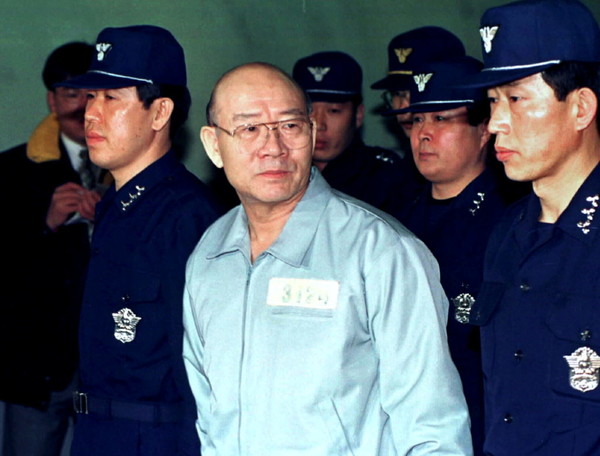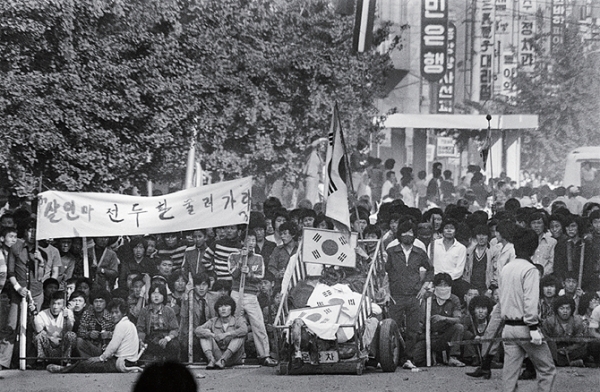
“Relieve the emergency martial law right away.” On May 18th, 1980, a pro-democracy movement in Gwangju was conducted against the military regime of Chun Doo-hwan. Before the Chun Doo-hwan regime, Park Chung-hee who had controlled Korea under the Yushin regime via a coup d'état in 1961, was killed by Kim Jae-gyu, director of the Korean Central Intelligence Agency in 1979. Then in December, Chun Doo-hwan took power with his military regime following Park Chung-hee, leading people to have hostility towards him. Finally, the public of Gwangju fought back against the government to regain democracy as Chun Doo-hwan extended a state of emergency martial law. This pro-democracy movement, which is called the Gwangju Uprising ended on May 27th, 1980. Let’s look into the Gwangju Uprising that should never be forgotten in the history of Korean democracy with CAH.

What Is the Gwangju Uprising, and How Did It Happen?
The military regime which newly came to power forced “suspension of all political activities, closure of universities, prohibition of conducting rallies & criticizing current and former chiefs of the state both in private and public, and pre-censorship of the press” by expanding the state of emergency martial law on May 17th 1980. At this time, the regime sent military troops to big cities including Gwangju, and stopped students going to schools who were not aware of the expansion of the law. With little hesitation, students who saw this scene and could not go to school, gathered and complained about beating students, peacefully shouting for the martial law army to step back. However, the martial law army started to beat citizens of Gwangju as well as students after ordering their gatherings to cease, so many people were injured, and some even critically so. On May 19th, the army more strictly pressed and quelled people as more citizens gathered with fury. Then, people continued the demonstration exclaiming “Chun Doo-hwan Out!” and bus & taxi drivers joined in citizen troop while some citizens tried to militarize themselves by bringing armored cars, and to inform people in other cities about Gwangju’s situations.
On May 21st Lee Hee-sung, the martial law commander announced the statement warning demonstrators in Gwangju while treating them as rabble, and ordered to shoot towards some protestors, even breaking his promise to retreat until noon. So, the citizen troop made more effort to remove the martial law army by confronting them with weapons of their own, hoping to relieve the situation. At first, the control committee collaboratively negotiated with the martial law army and maintained order among citizens, but the hardliners gained power after confusion due to the internal division. Finally, on the 27th, the martial law army brutally suppressed the Gwangju Uprising by opening fire on the protestors, saying “You are all surrounded.”
Chun Doo-hwan, and the Press
At that time, the Gwangju Uprising suffered disgrace as being “related to the North Korean army,” or “a plot by Kim Dae-jung[1]” due to oppression of the press. According to a fake rumor, the Gwangju Uprising was described as an anti-governmental riot by special soldiers from North Korea invading Gwangju. During the dictatorship by Chun Doo-hwan, there were many reports from the press arguing that the regime could not help excessively suppressing Gwangju as Kim Dae-jung who was abetted by North Korea led the riot. Corroborating this fake news, authorities of that regime received false confessions from people around Kim Dae-jung after torturing them. Also, the military regime of Chun Doo-hwan banned the domestically press reporting about Gwangju’s circumstance. Domestic reporters felt resentment, and began to protest against the government, since the foreign press was globally reporting the Gwangju Uprising unlike the domestic one. The Korean press, mainly young reporters, discussed censorship, refusal of publishing, etc., even though they faced many difficulties as some reporters secretly accused their colleagues in the government. Then, in May 20th, there was a struggle by journalists mainly in Seoul, rejecting censorship, and publishing. The struggle continued until the 27th, as various press throughout Korea joined it. On this, Chun Doo-hwan threatened presidents of the presses to hold responsible when the reporters carried on the struggle. Eventually, the government suppressed the public by forcibly merging the press and firing many journalists. More than 300 journalists were damaged by being illegally fired at that time, but they had not been compensated yet.
Unfortunately, Gwangju Uprising was done by military force. However, it enormously effected to post pro-democracy movements including the June Democratic Struggle in 1987. Also, it contributed to democracy in 21st century such as Candlelight Protests in 2016 which led Park Geun-hye’s impeachment. Moreover, it gave hope about democracy to people in the Third World[2]. According to an article of Newspower, Korea was regarded as an ironic state that had economic growth under the military dictatorship system at that time. However, Korea’s history of political protests, specifically the Gwanju Uprising, could positively influence other movements including the 2019 Hong Kong Anti-extradition Bill Protests, and the 2021 Myanmar Protests.
In December 1995, the National Assembly defined that movement in Gwangju, which was reported with distortion, as the “Gwangju Uprising” and enacted the “Special Act On The May 18 Democratization Movement” to restore honor of people who were injured or passed away, and to compensate their damages. Then in 2011, UNESCO registered records relevant to the Gwangju Uprising with the UNESCO Memory of the World Program. However, Chun Doo-hwan, the main cause of this heartbreaking pro-democracy movement event in Korean history died in 2021 November. He had never sincerely apologized to the bereaved related to the Gwangju Uprising, until he became 90 years old. In addition, he lived very well without guilt about it, never admitting his responsibility for the deaths of the citizens of Gwangju even before his death.
Many people feel warm in May, since May is known as Family Month. However, citizens all over the world should remember and be reminded that there were efforts of Gwangju citizens behind our current happiness. How about enjoying works related to the Gwangju Uprising for better understanding of this movement? Here is CAH’s recommended list for you!
*CAH's Movie Recommendations
A Taxi Driver, 2017
Kim-Gun, 2019
Peppermint Candy, 2000
[1] Kim Dae-jung was a Korean politician and the 15th president of South Korea who conducted pro-democracy movements in the 1980s. He was sentenced to death due to fake news about the Gwangju Uprising. However, his innocence was fully recognized in 2004.
[2] The Third World means developing countries in Asia, Africa, and Latin America that claim nationalism and nonalignment.

